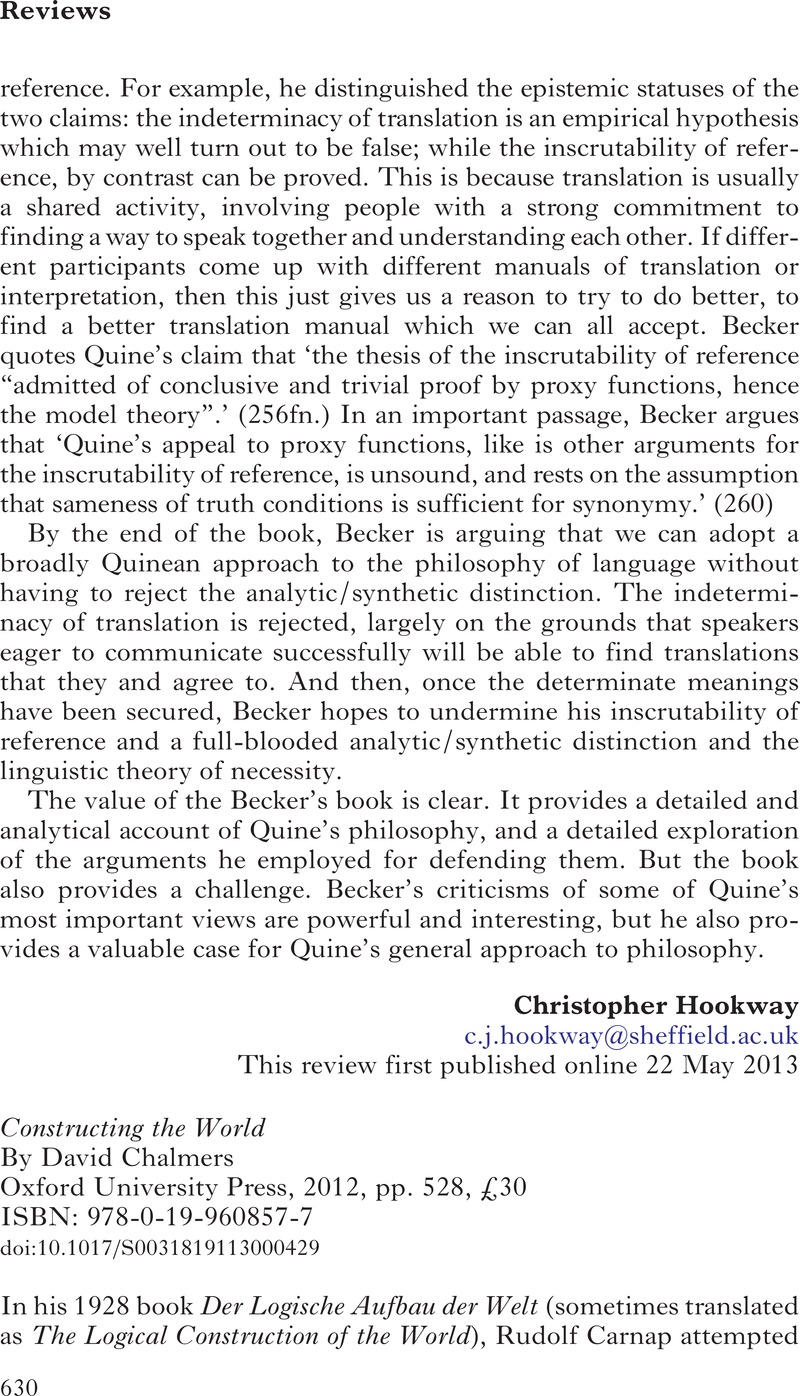No CrossRef data available.
Published online by Cambridge University Press: 22 May 2013

1 Carnap, Rudolf, Der Logische Aufbau Der Welt (Leipzig: Felix Meiner Verlag, 1928)Google Scholar. Translated as The Logical Structure of the World (Berkeley: University of California Press, 1967)Google Scholar.
2 An especially influential argument for this conclusion is made by Chisholm, Roderick, ‘The Problem of Empiricism’, Journal of Philosophy 45 (1948): 512–7CrossRefGoogle Scholar.
3 Quine, W. V., ‘Two Dogmas of Empiricism’, Philosophical Review 60 (1951): 20–43CrossRefGoogle Scholar.
4 Chalmers, David J., ‘Revisability and Conceptual Change in Two Dogmas of Empiricism’, Journal of Philosophy 108 (2011): 387–415CrossRefGoogle Scholar.
5 Block, Ned and Stalnaker, Robert, ‘Conceptual Analysis, Dualism, and the Explanatory Gap’, Philosophical Review 108 (1999): 1–46CrossRefGoogle Scholar.
6 Chalmers discusses ghost heat on page 124 of his book, but not in a way that addresses my objection here.
7 For an analogy, consider the literature devoted to finding truthmakers for negative truths. Russell, Bertrand in ‘The Philosophy of Logical Atomism’, The Monist (1918): 295–527Google Scholar, posits a broad range of negative facts, an analog to the view just considered. Armstrong, D. M. in Truth and Truthmakers (Cambridge University Press, 2004)CrossRefGoogle Scholar posits a single totality fact, an analog to Chalmers' that's-all truth.